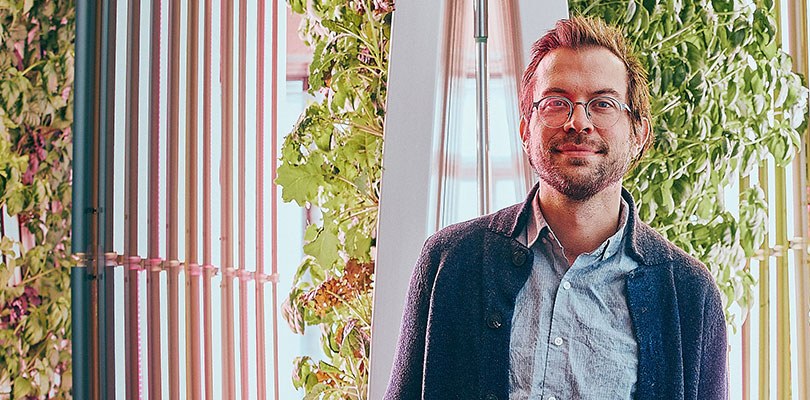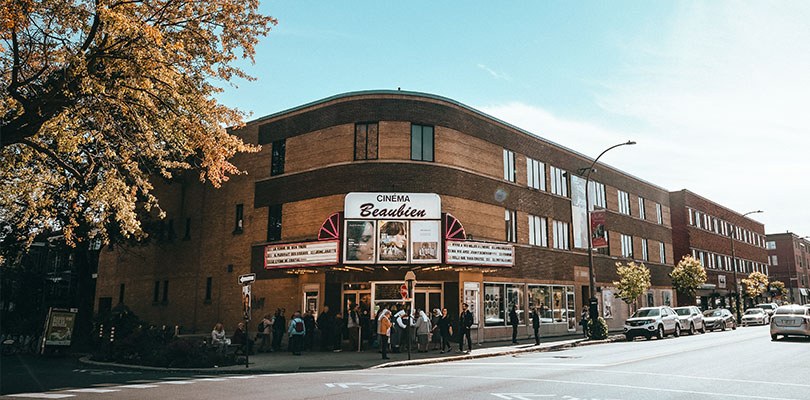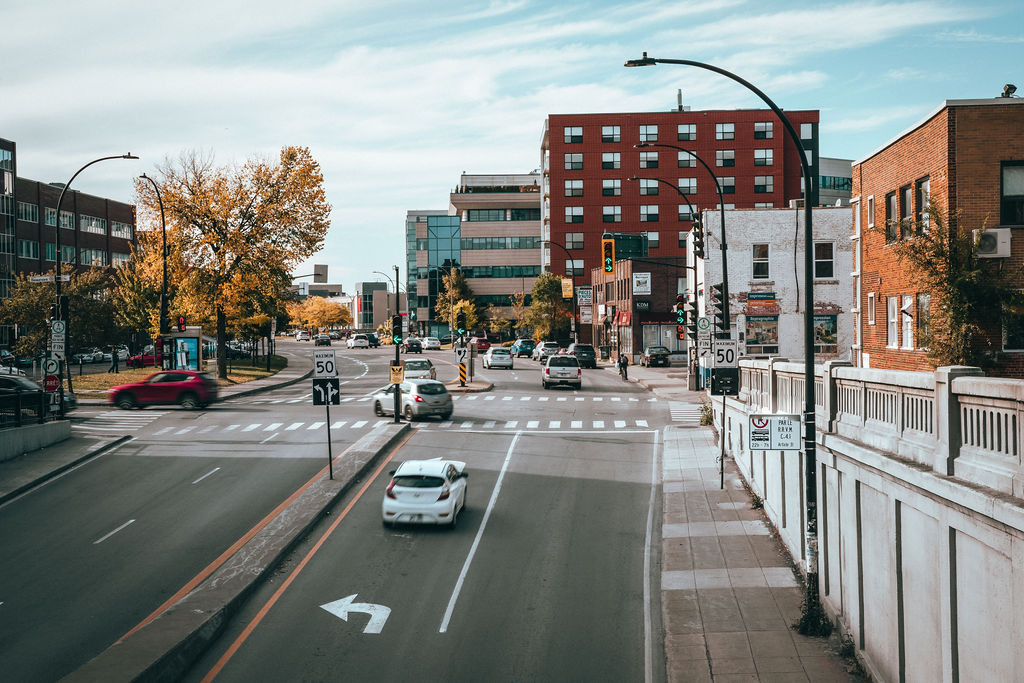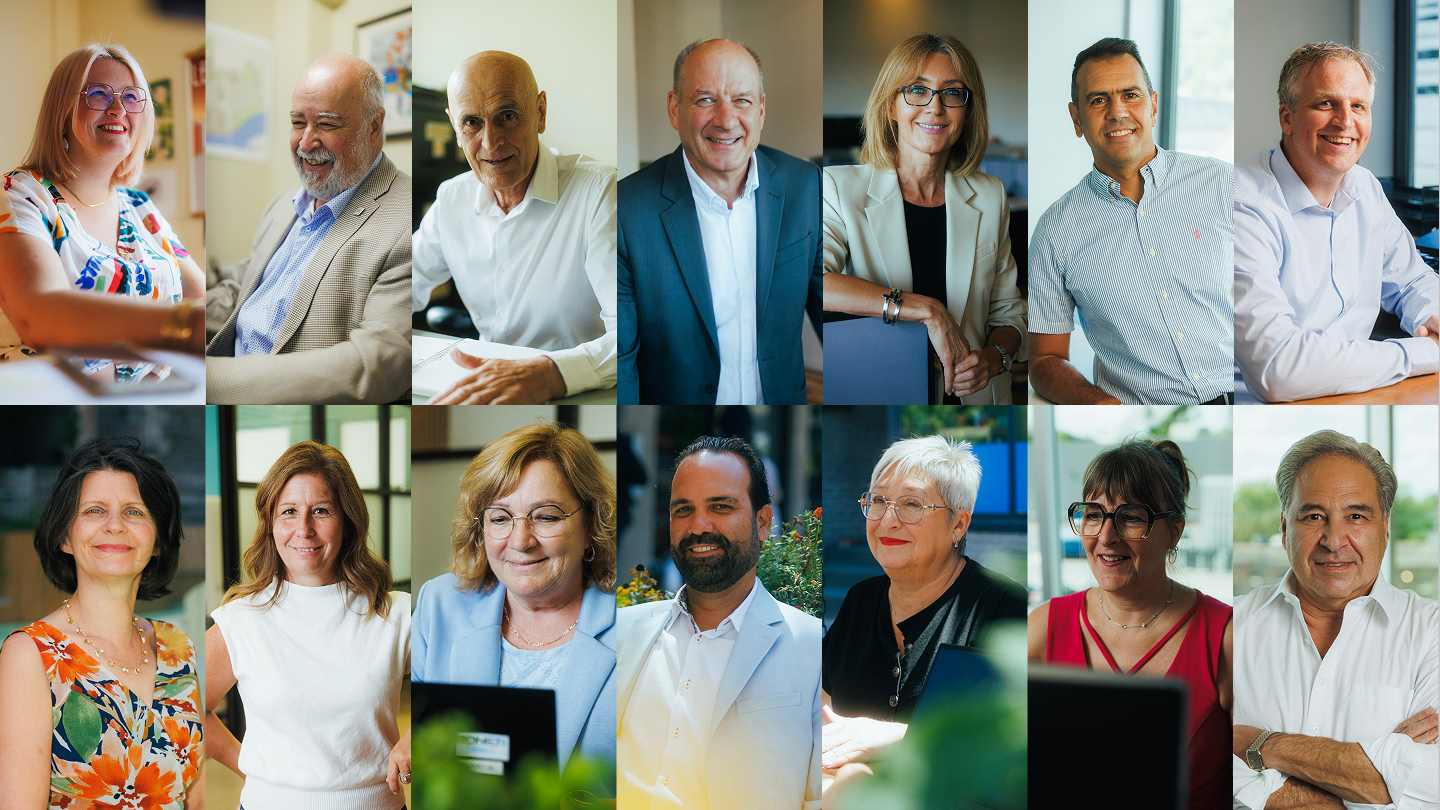La Centrale Agricole: Growing food in the garment district
Topic: Sustainable development Social entrepreneur Circular economy
Step: Growing
Urban agriculture 19 January 2021

Jean-Philippe Vermette is Director of Intervention and Public Policy at the Laboratoire sur l’agriculture urbaine (urban agriculture laboratory), one of the founding members of La Centrale Agricole (the agriculture hub), the first ever incubator for projects dedicated to urban agriculture in Montréal. This unique cooperative currently comprises a dozen agricultural producers. In 2019, they joined together to set up shop at 1401 rue Legendre Ouest, in the middle of the Chabanel neighbourhood, an area of Montréal that is better known as the garment district.
Synergistic production
According to Jean-Philippe: “We were a group of producers who were not looking for a field, but rather a building, to grow a variety of produce. A lot of owners are wary of these types of activities at their buildings, because they don’t understand the true implications of urban agriculture. For them, there is no difference between mushrooms and mildew, or between crickets and cockroaches. But we finally found this sturdy and nearly empty building in the Chabanel neighbourhood, and it worked out perfectly. The owner has an open mind and is receptive to our project.”
Together, we have formed a cooperative that allows producers, along with other stakeholders in the food industry, to find affordable and suitable locations for the practice of urban agriculture.
It is worth noting that LUFA Farms was already operating nearby. The idea of establishing a concentration of agricultural producers in the same neighbourhood is very sensible, because they can work together to develop an ecosystem. This type of synergy also exists on a smaller scale among the members of the La Centrale Agricole network. “Together, we have formed a cooperative that allows producers, along with other stakeholders in the food industry, to find affordable and suitable locations for the practice of urban agriculture. In addition to the locations that we make available, we also provide a community infrastructure. Rather than everyone having their own cold room, processing kitchen and meeting room, we share all of those.” Jean-Philippe explains.

A unique concept
There is abundant reproduction and growth occurring among a vast array of species at La Centrale Agricole. From mushrooms to insects to fish to herbs, to name but a few, members are currently cultivating 10,000 square feet on the roof and 40,000 square feet on the various floors of the building. “As presumptuous as it may seem, this is probably the largest urban project of this type in the world,” Jean-Philippe points out. Moreover, the growth is expected to continue. The team hopes to expand to up to 30 member producers by 2024.
This growth produces real benefits. At La Centrale Agricole there is strength in numbers, because the circular economy is at the very heart of the operation. Each participant benefits from the activities of other participants. For example, an excess of insects can be used to feed fish, and the fish excrement can then be used as a natural fertilizer to enrich the soil for plants, and so on. The cooperative is also in the process of acquiring an industrial composter to be located in the basement, so that it can become a zero waste building.
PME MTL supports the project
“The advisors from PME MTL Centre-Ouest were extremely motivated by this project right from the start. With LUFA Farms already operating in the neighbourhood, PME MTL recognized the potential of turning this area into the urban agriculture district of Montréal. They provided La Centrale Agricole and our ther member businesses with strategic coaching and financial support through the social economy funds that they administer,” Jean-Philippe concludes.
Articles
Des entrepreneurs qui font la différence
PME MTL vous propose des guides pratiques pour vous accompagner à chaque étape de votre parcours. Gagnez du temps avec des ressources conçues pour répondre à vos besoins spécifiques.




